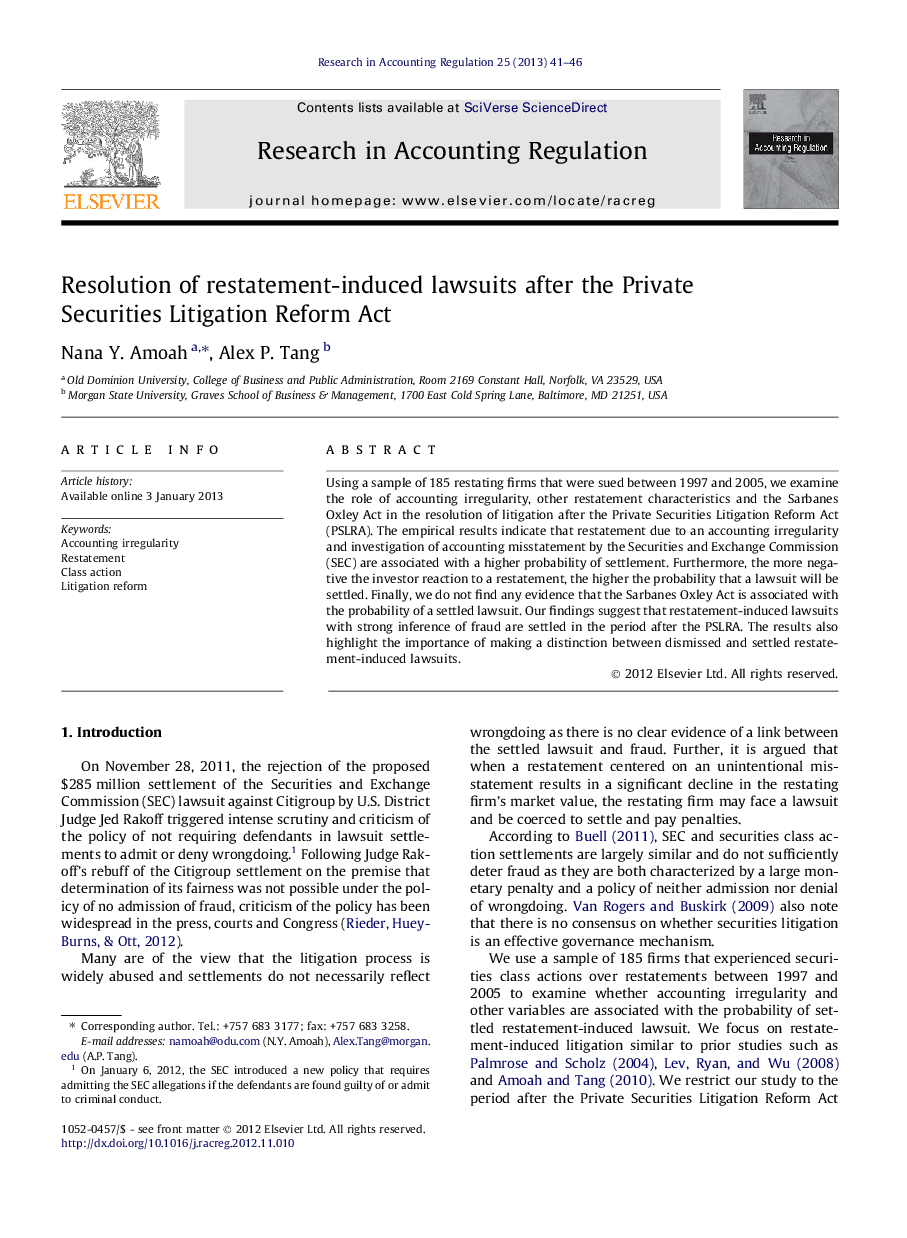| Article ID | Journal | Published Year | Pages | File Type |
|---|---|---|---|---|
| 1006631 | Research in Accounting Regulation | 2013 | 6 Pages |
Using a sample of 185 restating firms that were sued between 1997 and 2005, we examine the role of accounting irregularity, other restatement characteristics and the Sarbanes Oxley Act in the resolution of litigation after the Private Securities Litigation Reform Act (PSLRA). The empirical results indicate that restatement due to an accounting irregularity and investigation of accounting misstatement by the Securities and Exchange Commission (SEC) are associated with a higher probability of settlement. Furthermore, the more negative the investor reaction to a restatement, the higher the probability that a lawsuit will be settled. Finally, we do not find any evidence that the Sarbanes Oxley Act is associated with the probability of a settled lawsuit. Our findings suggest that restatement-induced lawsuits with strong inference of fraud are settled in the period after the PSLRA. The results also highlight the importance of making a distinction between dismissed and settled restatement-induced lawsuits.
